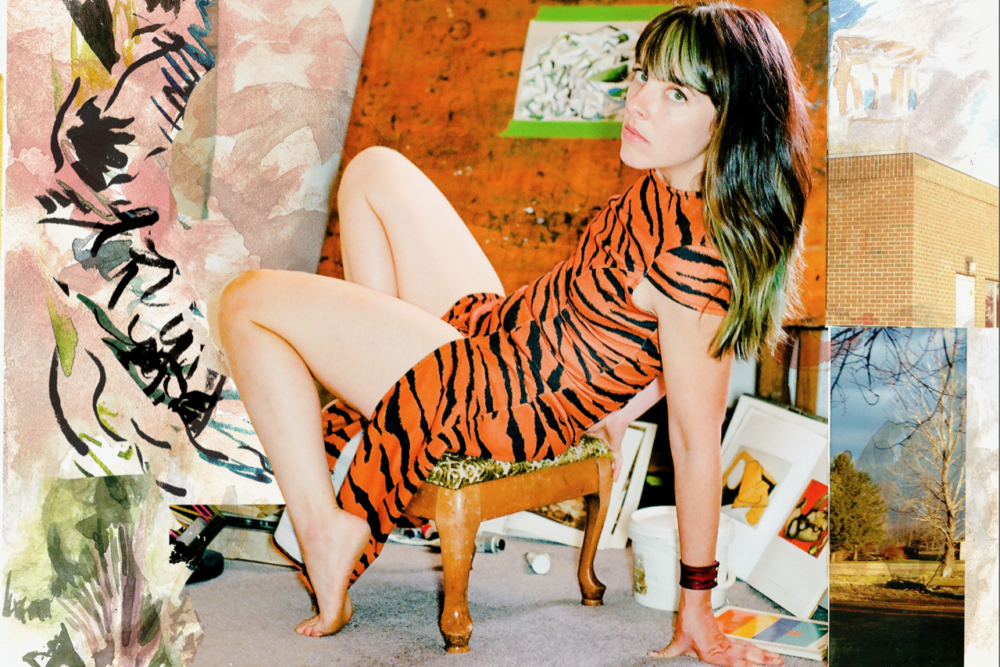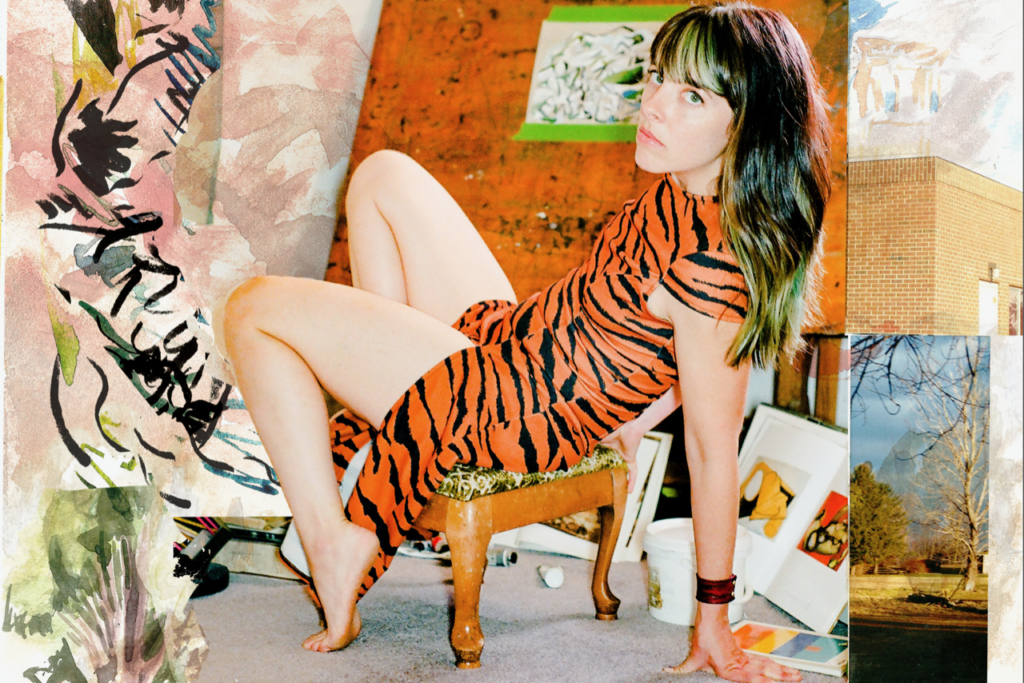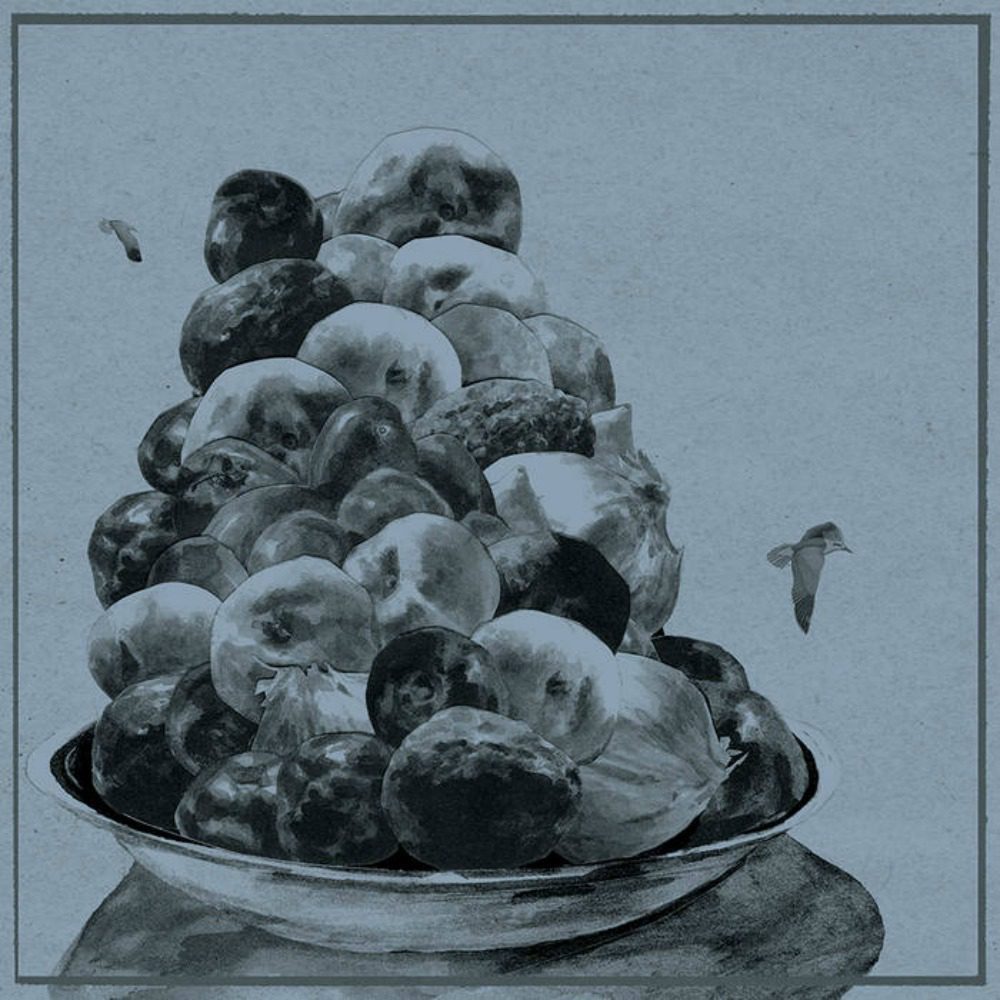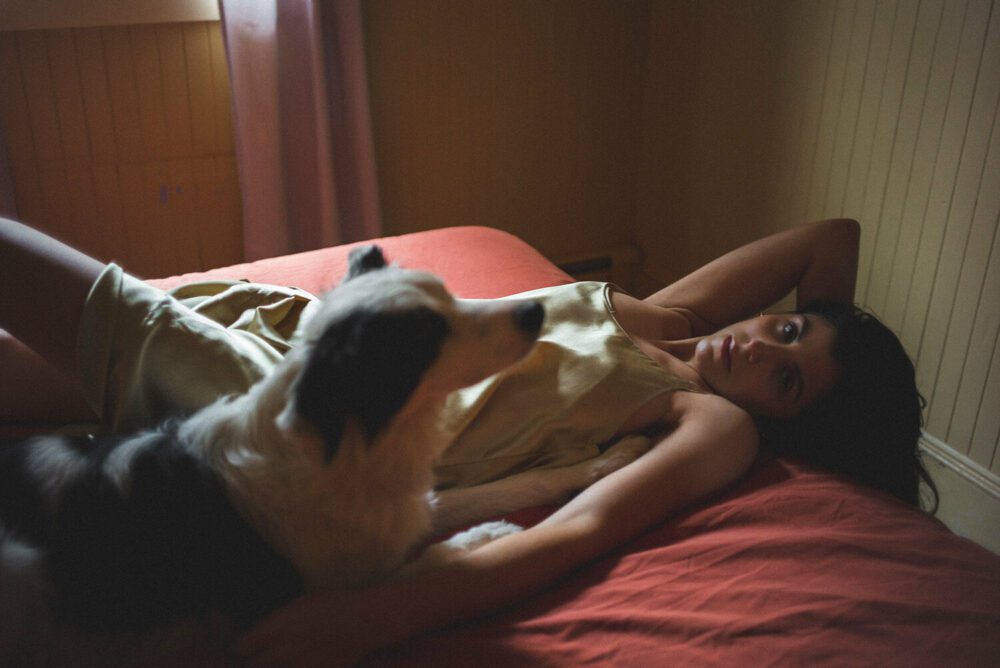
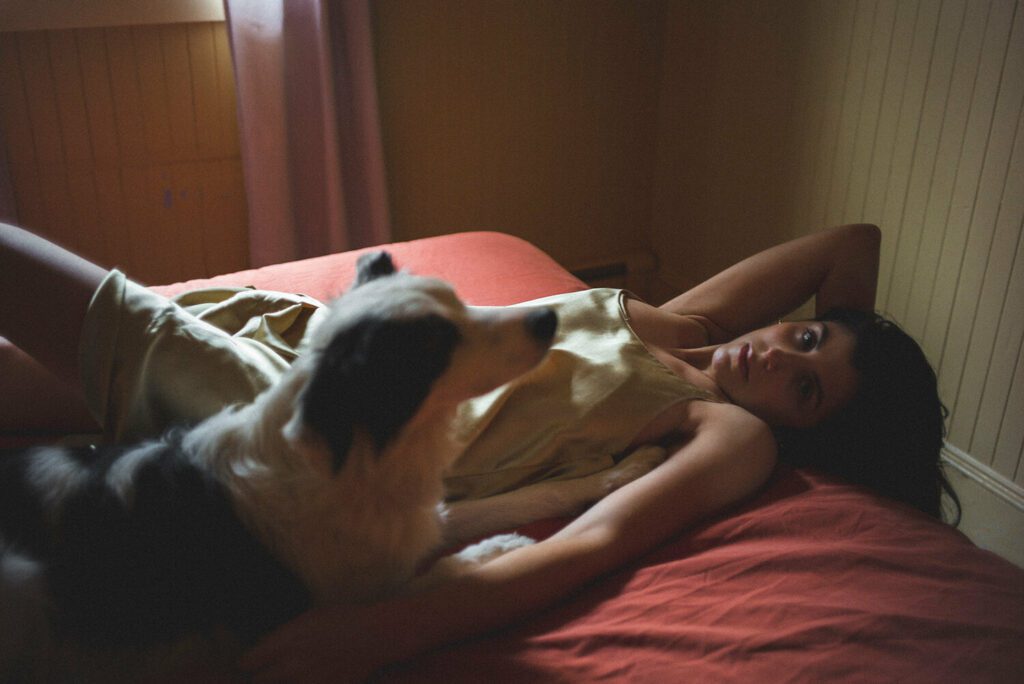
On September 24, Alexandra Levy – known by the musical moniker Ada Lea – released her sophomore LP one hand on the steering wheel the other sewing a garden via Saddle Creek Records. Recorded in Los Angeles with producer Marshall Vore, guitarist Harrison Whitford (both of Phoebe Bridgers’ band), and mixing engineer Burke Reid (Courtney Barnett), the album provides listeners a new perspective on an artist whose 2019 debut LP what we say in private had previously established her as a pillar in the contemporary indie scene.
A practice in long form storytelling, Ada Lea’s latest effort renders a handful of vignettes noteworthy enough to make up the essence of a singular year split evenly into four seasons, beginning with a fateful New Year’s Eve party depicted in “damn.” As the album unfolds, each song becomes a benchmark in a nonlinear devotion to documenting the happenings of a year in Levy’s life. Levy claims that “the narrative definitely took precedence over anything,” a sentiment which can be felt through the lyrical character building felt throughout. Here, duality creates intrigue – no character is any one thing, but a myriad of moments and desires which conflict with themselves tenderly and honestly.
The album, in part, is a commentary on how to get closer to time and its passing through revisiting physical locations. Set in the St Denis area of Montreal where Levy grew up, the physical release of the record includes a map marked with a corresponding location for each song. “partner” is set in the diner a heartbroken lover revisits to remember the glare of neon lights that shone down on her during a break up. “oranges” is centered on a house with a landing where two old friends shared cigarettes and wine, reminiscing of better times. On “saltspring,” the narrator goes back to an island to see names once written in the sand now washed away. Listeners can get a sense of Levy traversing a physical map as a way to conceive of memories from another time and even compare them to the present. One year is different from another, sure, but that difference is legitimized by the ways our relationships change, and how our feelings on those relationships shift with distance.
Levy and Vore were going for “rich, warm, chorus-y tones” which can be felt on each track regardless of structure. “[Marshall] had a pretty clear idea of what he was envisioning tonally, so it was just a matter of ‘dialing it in,’ as they say in the biz,” says Levy. “Some effects were baked into the tracks during the sessions with Marshall, but Burke Reid, who mixed the record, really brought the songs to this gorgeous place.” There’s something exciting about an artist who allows the environment and sound of a song to build the character in question as much as the lyrics. This happens subtly in Ada Lea’s work, leaving plenty of room for listeners to fall into the feelings she wants to evoke, beckoned quietly into the world built by each song without being told how to feel.
There’s a particularly interesting dynamic at work on album tracks “backyard” and “writer in ny.” With vocals that sound flattened and distant, “backyard” is about choosing to stay in one place and learn the ins and outs of it, a nod to the joys of familiarity and how watching things change over time develops attachments and understandings. “There is something to be said/About growing up in the neighbourhood/And then staying in that neighbourhood/Even when you finally could leave and explore other places near or far/But you chose to stay in the place you grew up,” Levy sings in the song’s opening lines, a distinct sentimentality in her delivery.
Immediately following, “writer in ny” embodies a craving for change based on fantasies attached to highly romanticized locations. The chorus goes, “Cause nothing’s gonna bring me down/If I never had it anyway/I’ll be a writer in New York/Winter in L.A.” Well aware of its cliché, these lines are heavy with the weight of believing that happiness can only be found in these ‘ideal’ ways of life, in these ‘ideal’ locations. And so two things can be true at once – we can flourish wherever we’re planted, marking our growth easily in familiar surroundings, while also yearning for growth and expansiveness elsewhere.
“On one hand you’re moving forward, you’re in motion, but your other hand is gripping to memories and roots – somehow wanting to be in control, yet reaching for the impossible at the same time,” Levy says of this “push and pull.” That concept echoes through the album’s title, with its play on words (using “sewing” as an alternative to “sowing”) signifying the way language can twist our intentions.
Throughout one hand… we are given insight into characters introduced in Ada Lea’s previous work. We see and feel that critical moments have transpired that have changed these people for better and for worse. And true to reality, not every moment could have been foretold. Levy’s greatest inspiration, author Elena Ferrante, says that the best writing brings “Unexpected events, meaningful contradictions, sudden swerves in the language, in the psychology of the characters.” For me, the most intriguing part of this album is the way Levy forgives the humanness of her characters, how she continues to love them and be loved by them, regardless of their mistakes and their daydreaming. It’s as honest as it is heartbreaking, and like life it continues to unfold as quickly as time allows.
No moving to a new city, going back to an old lover, or reminiscing on drunken parties will slow that roll, but Levy manages to document her life and the lives of those around her well enough that change feels less like a loss and more like an opportunity for the upheaval of unending doldrums. Mid-album instrumental track “and my newness spoke to your newness and it was a thing of endless,” a slightly variable guitar loop with a soft, warm hum throughout, explains best how fast and bottomless one year can be – especially when in the company of a loved one, reborn endlessly into one another’s newfangled selves.
Follow Ada Lea on Instagram and Facebook for ongoing updates.



